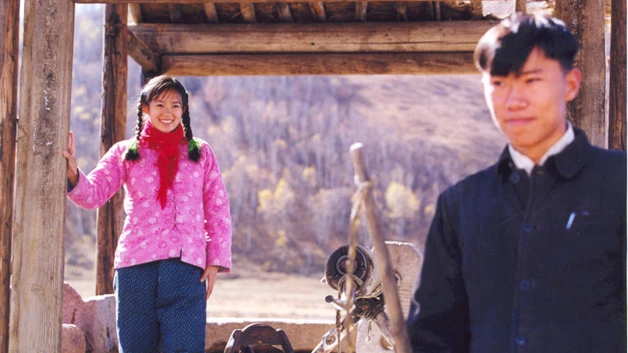Ever thought about going to Georgia? If you haven’t, you probably should (especially if you like hiking). In the meantime check out The Trader on Netflix. It will give you a 25 minute glimpse of life in a rural Georgian town connected to modernity by a ‘back of the van’ trader from the city.

Why Watch The Trader?
- Everyone has time to watch it AND it’s available to watch on Netflix
- To get a glimpse of rural Georgia
- It won the top short-documentary prize at the Sundance Film Festival
- To witness the power of potatoes – they’re food and currency!
The Breakdown
First we’re introduced to Gela as he browses the stocks of various shops in the city he’s from. He’s looking for items to fill his van (his moving shop) before he drives into the country to sell them. As a trader, his aim is to pick any items his customers are likely to need or want, which he can then trade for a portion of the year’s latest potato crop.
It might sound simple, but it’s not. The village he drives to appears half deserted. The grey corrugated iron roofs match the grey skies and compliments the brown dirt ground. It doesn’t look like a place where you’d expect to make any sales. However, sure enough, a few residents and their kids gather round Gela and his shop (the back of his van) and start haggling with him for a few of his wares. After 2 days at the village, he ends up with a few kilos of potatoes to take home. Not a great crop.
But it could be worse, he could be one of the residents living in the remote village. He could be like the old man who regrets never getting an education. Or he could be like the young boy who has absolutely no idea of what he wants to be when he grows up, even after his mum prompts him to say ‘a journalist’. The place is completely devoid of dreams and full of regret.
Is the Trader to Blame?
Hard to say. Gela, the trader, is the only connection for this community to modernity. He is the only one who appears to make the trip to this remote village and give the population a market to sell their excess potatoes.
However, the market is tilted in his favour. The village community have to accept all the goods he brings to sell even if it is a load of useless rubbish. If they keep their excess potatoes they’ll only go rotten as it doesn’t look like they’ll have another opportunity to sell. Therefore they have to accept whatever Gela offers. So they’ll continue to buy second rate goods and as a result, their village never progresses as far as the contents of Gela’s van.
Conclusion and What to Watch Next
If a picture tells a thousand words, The Trader packs enough into it’s 25 minutes to constitute a few essays. Not because it’s complex, but because the dialogue and images so concisely document life in rural Georgia and the importance of one man, the trader.
If the rural town in this film struck you, I recommend checking out Kazakhstan’s The Wounded Angel, also set in a remote, hopeless town. If you’re into more arty film, there’s also Lav Diaz’s From What is Before which charts the effects of a dictatorship on a remote rural town in the Philippines.
Or, if you’re after more great documentaries, I strongly recommend you check out Makala. It follows the complete process of a charcoal maker from cutting down a tree 3 days walk from the nearest city to selling the final product (after walking for 3 days) in said city. It won Cannes Critic Week because it’s one of the most beautifully captured films you’ll ever see.






You must be logged in to post a comment.